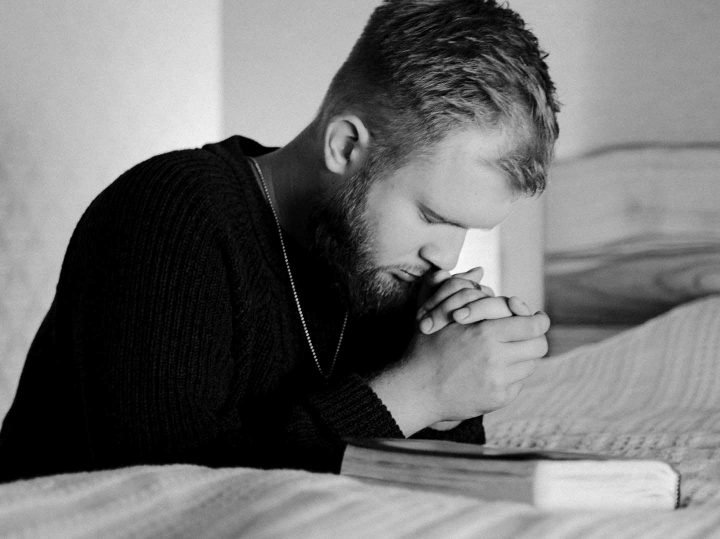Today we are going to deal with some very simple tips, but if you practice them, you can improve some emotional struggles that you may have. Our mind has an area called the unconscious. To this virtual dimension of our mind, memories, feelings, ideas, positive and negative, pleasant and unpleasant desires throughout our life are deposited.

Everything that happens in your life, in your relationship with people, what you think, what you think you are, everything goes into this space, this virtual file in our mind called the unconscious. So, all the thoughts and feelings that you lived throughout your childhood, adolescence, adulthood, and everything you lived in your family of origin back in the past, are all stored in this mental file called the unconscious.
We do not have access to this file of the unconscious when we want to, but when we can. That is, when you are ready to be aware of some kind of remembrance, memory, emotion or thought that was there in this space, unconscious for so many years.
Many people, when they come to a psychology or psychiatrist office, to talk about their suffering, their symptoms, they say: “I don’t know why I’m feeling this, I don’t know where this sadness comes from, I don’t know where does this anguish, this affliction come from? Well, where does it come from? It comes from some things that are there in the unconscious, some dynamics, some emotion, some situation of stress, of conflict that the person has experienced, but that the mind itself has put some barriers, some defenses for you not to think about it, because thinking about what hurts, really hurts.

So the mind does this defense mechanism, it puts it under the rug, it puts what was painful for you into the unconscious, so you can continue your life, survive without getting stuck, without stopping because of those unresolved conflicts. But unresolved conflicts need to come to the surface of consciousness, at least some memories, so that you can learn to deal with it in a better way, with more courage, with more determination, with more humility as well.
Many people have physical symptoms, originating from these emotional conflicts. We call this somatization. Somatization is when a person presents in the body some physical manifestations without having a specific diagnosable disease. The body always works together with our mind, trying to help each other. So, if you have important emotional traumas from your past or present that really hurt, it is possible in adult life that you will present physical symptoms of emotional origin, or psychological symptoms as well, such as the urge to cry, excessive anxiety, irrational fears, continuous sadness among others.
Many children are victims of abuse from their family of origin. Sometimes it is a physically aggressive father, other times it is an authoritarian mother, being kind of rude with her children, leading the child to have some emotional disorder in his adult life, some behavioral complications, such as excessive shyness, or the opposite of that, being a very irritable, socially aggressive person. These dysfunctional behaviors really have to do with the traumas and conflicts in the past.

In adult life, the person with psychological sufferings that impair their performance at work, in studies, and in relationships in general, can find relief when they try to make a personal analysis, thinking about what they suffered in the past and what they have been doing with this suffering throughout their lifetime.
Did you keep your resentments, still not able to forgive the people who hurt you back there? Do you repeat attitudes you hated and swore you would never do, what your father did or what your mother did that you didn’t like? Do you find it difficult to cry? On the other hand, do you cry very easily, not knowing why? We call this emotional lability. Have you got any phobia, which is exaggerated fear? Do you feel depressed most of the time? Do you have a lot of anxiety, do you keep fighting with others? Well, then talk about your emotional pain, because talking can relieve it.
Try to think about what bothers you the most on your mind? Is it fear, is it anxiety, is it sadness, is it irritation? Talk about it to someone who is trustworthy, someone who is ethical, who will not take advantage of you, who will maintain confidentiality, and who will not promote emotional or sexual involvement either. Someone ethical who has experience, not necessarily a professional, but perhaps an uncle, a grandfather, a religious leader who can give you some counsel.
Put your difficulties in sincere prayer before the creator of the universe, using your own words in this prayer, believing that he hears your venting, and persevere in it: in prayer, in venting, in talking to God, believing that He is listening to you, but having patience, because the answers don’t always come quickly. Not because God is not ready to give quick healing or quick restoration, but because there are some things he needs to teach us and we need to learn.

Many people get relief and insight in their emotional problem through prayer. Scientists are studying this: what prayer does to people’s minds, brains and behavior. It’s always a positive thing when you say a sincere and honest prayer. By venting to God and to someone who is able to help, and who doesn’t necessarily have to be a professional in psychology, you can improve. Venting helps to improve.
If your symptoms are very limiting, for example preventing you from studying, or working, or getting along well with the majority of people, then you may consider that you need an evaluation with a professional. But start with something simple, like venting, and think like this: do I need to ask someone for forgiveness? Then ask! Do I need to put an end to resentments? Then you will forgive someone who hurt you to end that resentment. Do you need to treat yourself better and stop having self-deprecating thoughts? So work on that. Every time you catch yourself thinking bad about yourself, criticizing yourself, putting yourself down, say to yourself: I won’t do this to me. I’m going to treat myself better, I’m going to respect myself. So this simple attitude that you can start doing there right now, will promote the healing process. Healing is a process you need. Start with simple things. It works!

Stay Always Up to Date
Sign up to our newsletter and stay always informed with news and tips around your health.

Dr. Cesar Vasconcellos de Souza is working as a psychiatrist and international speaker. He is author of 3 books, columnist of the health magazine “Vida e Saúde” for 25 years, and has a regular program on the “Novo Tempo” TV channel.
Leave a Reply